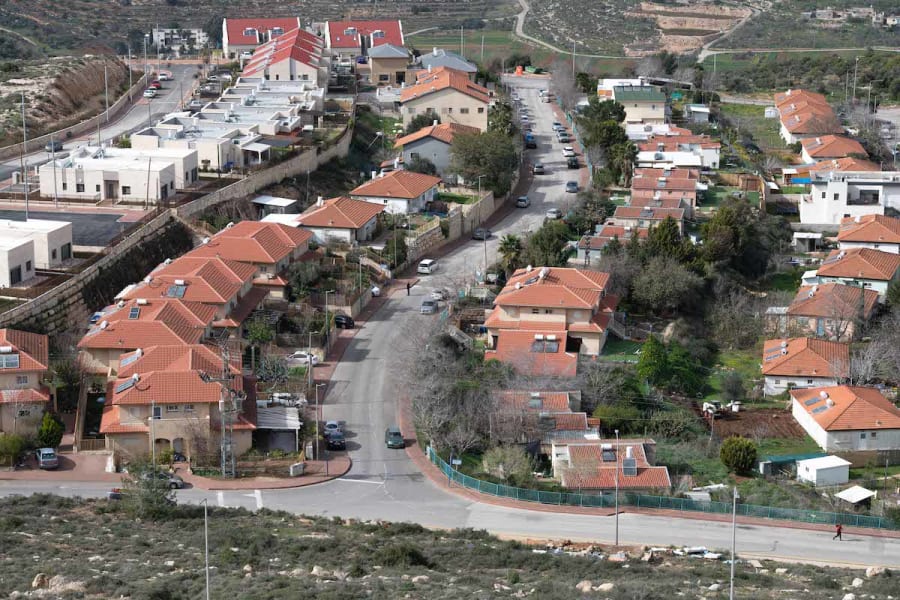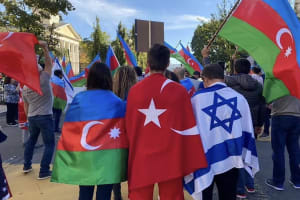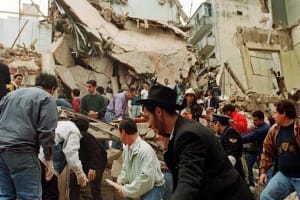Israeli government advances massive development plan for settlements in Judea and Samaria
Plan is estimated to cost hundreds of millions of shekels

An ambitious plan to invest hundreds of millions of shekels in Jewish settlements in Judea and Samaria is being advanced by Settlement and National Missions Minister Orit Struck, according to Israel's financial newspaper Calcalist.
The rationale for the plan, still in development, is to strengthen “civil resilience” in the settlements of Judea and Samaria, also known as the West Bank.
The project is estimated to cost at least NIS 672 million ($182 million) in the current fiscal year, of which Struck’s ministry will provide around NIS 220 million ($60 million), or half of its yearly budget. The remainder will be taken from the Finance Ministry, Interior Ministry and Defense Ministry budgets, among others.
The plan includes a number of projects targeting different areas of development, some of which are based on previous coalition agreements.
One controversial idea is the dismantling of five IDF bases in order to build new residential neighborhoods and industrial areas, a project estimated to cost several hundred million shekels.
The removal of IDF military bases to make space for settlements is a known practice that prevents Palestinian claims of private ownership of the land and was used in the past to create towns like Ofra and Beit El.
Some NIS 184 million ($50 million) is intended to finance the constant expenses arising from the situation in the West Bank, in addition to the funding provided to Judea and Samaria for ongoing security purposes.
Another project aims to invest NIS 100 million ($27 million) for social support of communities, the construction of public buildings and spaces, the encouragement of small businesses and entrepreneurship, and the establishment of reception centers for new immigrants.
About NIS 12 million ($3 million) will be allocated by the Immigration and Absorption Ministry to fund fairs and exhibitions abroad to advertise the settlements to potential new immigrants.
Roughly NIS 137 million ($37 million) in funding will be used to promote boarding schools in the area, maintain buildings, convert temporary buildings into permanent facilities and provide school transportation and security services.
An additional NIS 37 million ($10 million) will be invested in the infrastructure for “regulated young settlements.” These are formerly illegal outposts originally built without permits but became regulated by law in recent years.
The current government has increased its support to develop Judea and Samaria but has also continued to evacuate illegally created outposts.
This week, a number of agricultural farms in the Samaria region opened their doors to the public for the first time, offering diverse activities for the whole family, Israel’s Channel 7 news reported.
These included wine tastings at the Nachala Winery, a basket-weaving workshop at Avi'a Farm, a yogurt-making workshop at the agricultural visitor center at Yedid Farm, a guided archaeological tour of the Deir Dekla archaeological site, and much more.
The Samaria tourism department and the Samaria Regional Council will hold a variety of events throughout the summer to increase tourism and business activities.
"Samaria offers a unique and extraordinary experience. The beautiful agricultural farms are the spearhead of the pioneering settlement, offering the enjoyment of nature and values," said Samaria Regional Council head Yossi Dagan. "We are happy that hundreds of families have chosen to get to know, enjoy and support the pioneers of the settlement."

The All Israel News Staff is a team of journalists in Israel.
You might also like to read this:

















